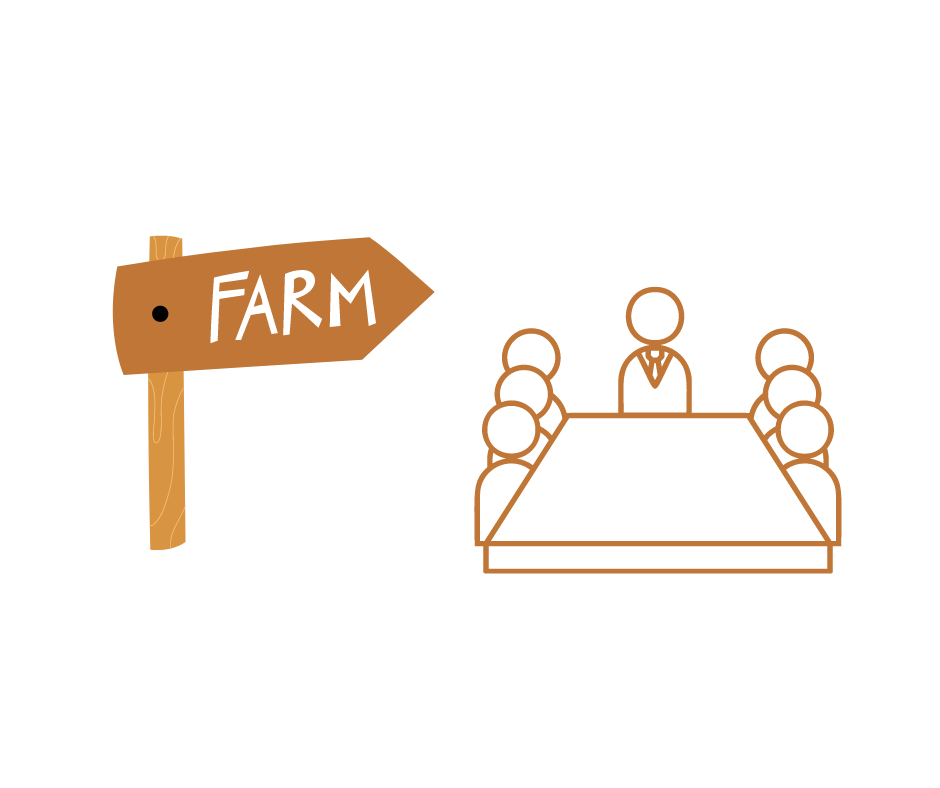
From Farm to Board Table by Kyle Reece
It was 14 years ago when I first walked onto the farm. Time sure does fly. At that time, I was at my absolute lowest point. I had no hope and felt like I had nothing. The bleakness of the situation would have been harrowing for any youth. I was being separated from my family, from everyone I knew, and sent to what would be my home for the next ten months. Every waking minute, I wished I could go home. I prayed that things would get better—better for me and better for my family. I did not want to be on that farm.
All these years later, looking back, I wish I could reach out to 16-year-old Kyle and tell him things would get better. I wish I could tell him that there is a light at the end of the tunnel. But I know that 16-year-old Kyle had to brave the trials before him. I am proud to say that I bravely went through those scary nights on the farm, wishing it would all improve.
After being diagnosed with Autism at 13 and spending the following years struggling with severe anxiety and depression, I was admitted to a psychiatric hospital four times before eventually ending up at the farm. This farm, a relatively large residential treatment center in Virginia, wasn’t a typical farm with chickens or cows (though there were donkeys). It was as much of a farm as it was a home, but for the purpose of this post, it was my farm, and for ten months, it was my home. I hated it there—not only because I was an hour away from my loved ones, but because it was a tough place to live. Being surrounded by nearly 60 other youth with mental and emotional health needs was terrifying.
Although I was fortunate to have a family who loved me, whom I could call once a night and see every other week, I felt incredibly lonely, isolated, and without much hope. That changed when I met Mr. Mario.
Mr. Mario was excellent. He understood me. He talked to me at my level. He showed that he cared about me and believed I could get better. Mr. Mario was the only staff member at the farm I could trust and was the only reason I could get through those daunting ten months. He believed in youth voice—that I should have a say in the care I received. He thought I was intelligent and capable enough to advocate for myself. He believed all I needed was for people to believe in me, show they cared, and support me as I received the medical help I needed to get off that farm eventually.
Because of staff like Mr. Mario, I eventually did leave the farm. While I still struggled at home and later ended up in a therapeutic foster home until I graduated high school, I was no longer in a place as scary as the farm. After graduating, I got connected with several youth empowerment organizations. These groups shared the same beliefs as Mr. Mario: that I should have a voice in the care I receive and that I should have the opportunity to advocate for system-wide change. They believed that the best way to improve these farms was for people with lived experience to share insights on making meaningful changes that would impact other youth.
For the next decade, I shared my lived experience to improve systems and services and transform these farms. The journey wasn’t easy, as I navigated my mental health along the way, but I was in a stable place, helping other youth use their voices to get the support they needed.
As the Youth Training Coordinator at North Carolina Voices Amplified, I now train youth peer supporters who share the same values Mr. Mario did. I support young people who have gone through their complex challenges and have come out on the other side. I want to give back and support youth who are still struggling. I am very proud of my role, and I know Mr. Mario would also be proud of me.
I also serve as a Board Advisor for the Association of Children’s Residential and Community Services (ACRC). In this role, I support farms across the country and the world by sharing my experiences and helping youth on these farms not feel so scared. I also ensure that every youth has staff who care about them as much as Mr. Mario cared about me.
As I sit here in Virginia Beach at a board meeting, I can’t help but laugh. This process has taken me 14 years—from being in a residential treatment farm in Virginia, supported by someone who believed in me and encouraged me to speak up and speak out, to now being able to share my voice at a system-wide level and help other youth do the same. These opportunities were beyond my imagination when I first walked onto that farm. But because I had people who believed in me, nurtured me, helped me grow, and inspired me to give back, I can say that I’ve gone from farm to (board) table.
How delicious is that?